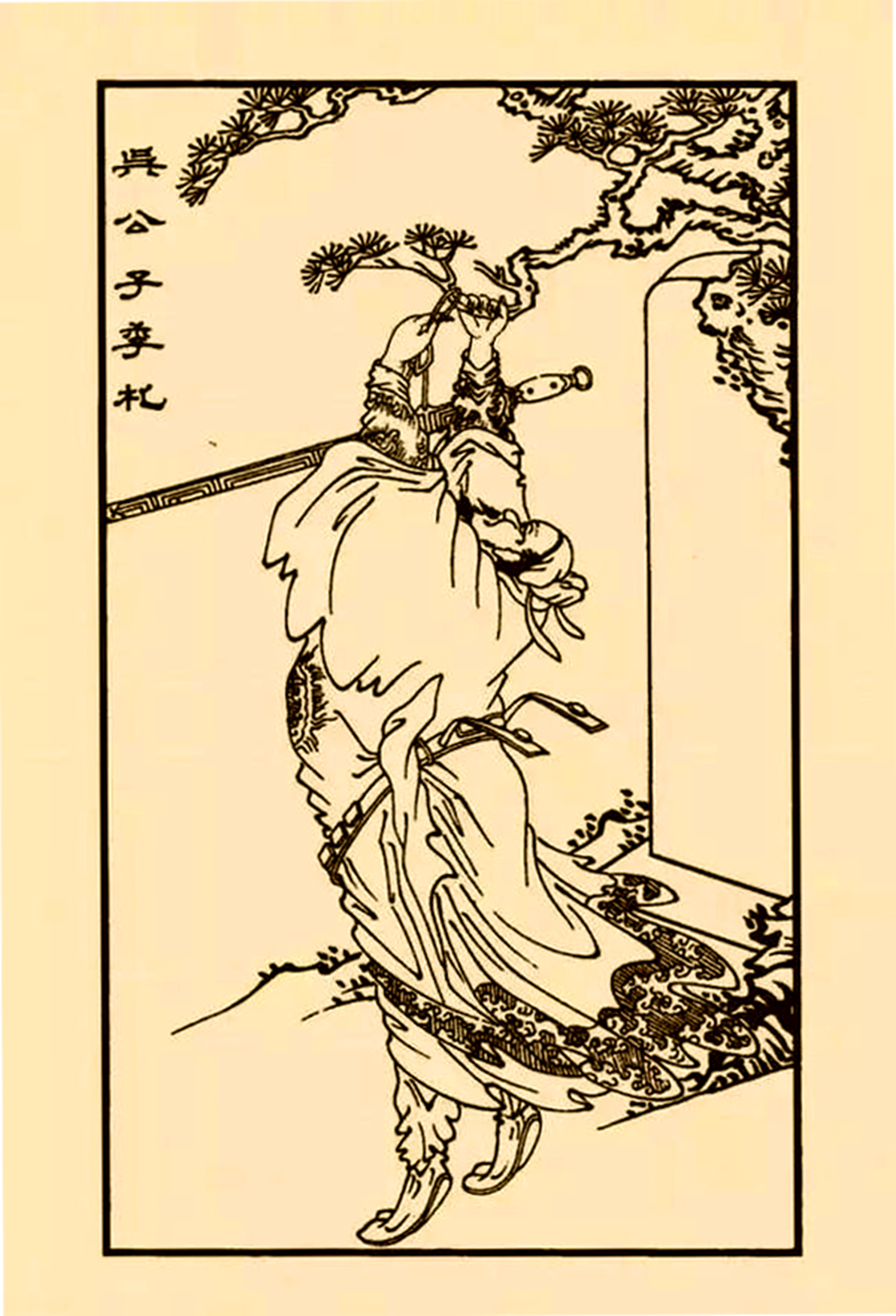CHINESE WISDOM

季札挂剑
Ji Zha hanging up the sword
The Wu Kingdom in the Zhou Dynasty (1046-256 BCE) was famous for its technical skill in forging swords. Ji Zha was the youngest son of King Shoumeng of the Wu Kingdom. Ji was also one of Confucius’ teachers and was greatly admired by his student. He was sometimes considered the first Confucian master in southern China, parallel to Confucius in the North. According to the Records of the Grand Historian by Sima Qian in the Han Dynasty, Ji once stopped in the Xu Kingdom in present-day Suzhou City of Jiangsu Province when he was sent on a diplomatic mission to the Jin Kingdom in the North. He was well treated by the King of Xu, who was a collector of swords. The king coveted the sword that Ji was carrying but did not express his desire. Ji noticed this, but due to the nature of his mission, he did not give the sword to the king.
After finishing his mission and retuning back, Ji Zha stopped again in the Xu Kingdom. Unfortunately, the king had died. Ji removed his sword and hung it on a tree by the side of the grave of the king. His attendant asked: “The king is dead. What is the meaning of this?” Ji replied: “I promised in my heart to send him this sword last time. How can I break my promise just because he has passed away?”
This story is quoted to mourn a deceased friend or to describe a man who keeps his promises to the deceased.
吴越同舟
Men from the Wu and Yue kingdoms crossing a river in the same boat
The Wu and Yue kingdoms were enemies for generations. In the Art of War, Sun Tzu (c.545-c.470) wrote: “The men of the Wu and Yue kingdoms are enemies of each other; yet if they are crossing a river in the same boat and are caught by a storm, they will come to each other’s assistance just as the left hand helps the right.”
The story is usually quoted to say that even mortal enemies should set aside their disputes and help each other in the face of common danger.
